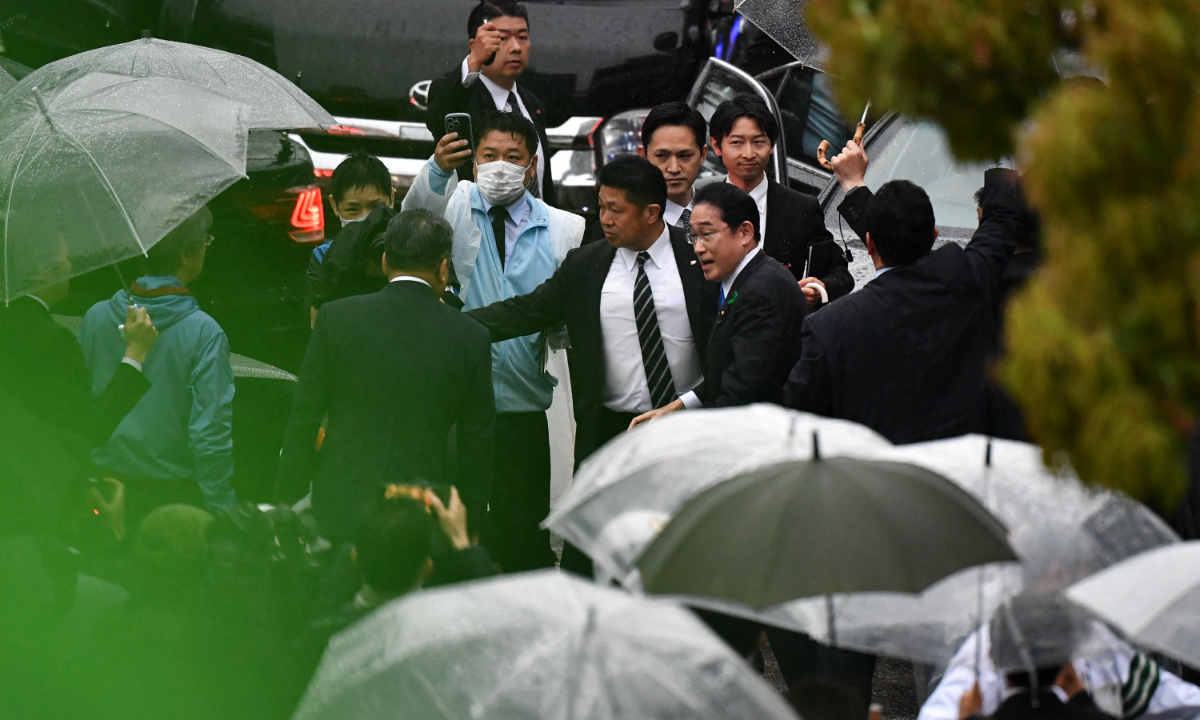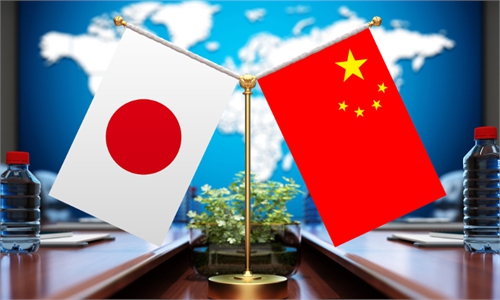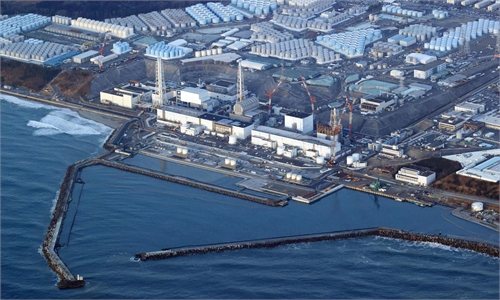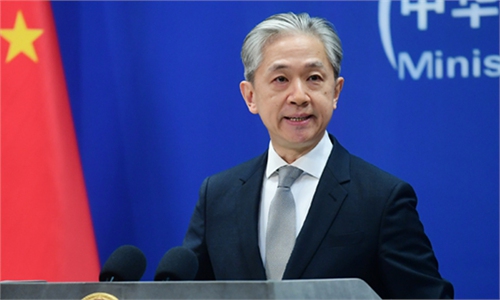Explosion near Fumio Kishida casts doubt over security of upcoming G7 meetings: observers

Photo:AFP
The explosion at the event of Japanese Prime Minister Fumio Kishida's political speech only months after the assassination of Shinzo Abe signifies that the myth of Japan being a secure country has blown up, triggering the public to cast doubt as to whether Japan is able to hold the G7 foreign ministers' meeting and the Hiroshima Summit in a safe manner, experts said Saturday.
Prime Minister Fumio Kishida escaped unharmed on Saturday after a loud explosion rang out ahead of a planned speech in the city of Wakayama, the Japan Times reported.
A cylindrical object landed only one meter from where the prime minister was standing when he was about to begin his speech. A suspect carrying two cylindrical objects believed to be explosive products was subdued nearby, the Japan Times report said.
This explosion is a similar attack with one targeting Shinzo Abe in 2022. A spate of attacks targeting top officials in the country that has long been proud of its domestic security record and low crime rate have led the international community to worry about whether Japan can fully protect visiting politicians for G7 Hiroshima Summit in May, Chinese observers noted.
"From the explosion event to the attack targeting Abe, we can tell that the myth of Japan being a secure country has burst," Da Zhigang, director of the Institute of Northeast Asian Studies at the Heilongjiang Provincial Academy of Social Sciences, told the Global Times on Saturday.
Such cases undoubtedly lead people to worry whether the attack would expand from politicians to the general public in the future, and whether the violence act would be expanded and copied by some other hostile forces, Da noted.
Compared with the attack on Abe last year, the Japanese security personnel responded relatively quickly this time, and there were no obvious loopholes, but this leads the public to wonder how to ensure the safety of politicians during elections in the future, Chen Yang, a visiting researcher at the Institute of Japan Studies, Liaoning University, told the Global Times.
The explosion targeting Kishida reflects that Japan has some forces who are dissatisfied at the government's policies. It may not necessarily mean that Japanese society is being torn apart, but a sense of resentment has already been generated, Da said.
Chen believes that these attacks are largely due to Japan's increasingly resentful society, caused by the sluggish economic growth and rising prices, which aggravated the resentment among some people and led to violent acts and extreme incidents.
The incident comes just nine months after the assassination of former prime minister Shinzo Abe while he was campaigning for the LDP. Earlier, other attacks on politicians in Japan included the fatal 2007 shooting of Nagasaki Mayor Itcho Ito by a senior member of a criminal syndicate, according to the Japan Times.
The Japanese police is reportedly investigating the case about whether the suspect had been influenced by the Abe incidence and the real intention behind.
Chen noted that since Abe was attacked last year, Japanese media has made lots of reports about it in terms of identity of the suspect, the intention and how the weapon was used. Such intense reports in one hand responded to public concern, and in another, "created" lots of "imitators."
The G7 Hiroshima Summit will be held from May 19 to 21, 2023. Chen said the explosion will obviously exert an impact on the upcoming G7 foreign minister's meeting and Hiroshima Summit.
While Japan is proud of its strong domestic security record and low crime rate, the attack on Abe and the explosion targeting Kishida may lead the international community to worry about security in Japan, Chen said.
Though the Japanese government has increased the security budget for this year's G7 meetings, the latest attack on the top Japanese politician prior to the meeting will heighten tensions throughout G7 members and public opinion in Japan, as well as cast a shadow over the summit, Chen noted.




